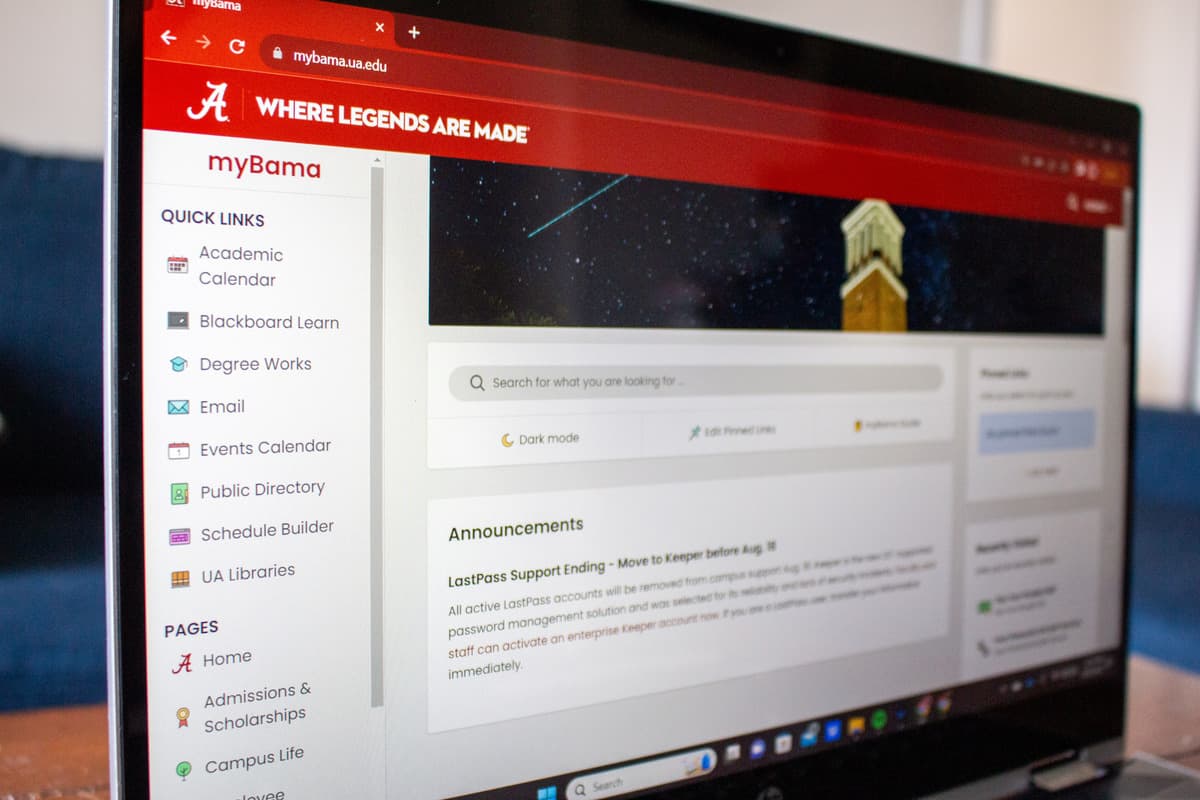If you’re thinking about changing your major, do it. If you start feeling like you should drop one of your classes, do it.
College is a period of personal transformation for every student. Many incoming students leave their high school friends and their hometown to spend years in a new city, maybe in a new state. They will likely change as much as their environment did.
There’s no reason to believe you picked the best major for you when first registering for classes. I came to The University of Alabama planning to major in computer science. I dropped it to a minor after I realized I was spending my time in computer science classes reading political science papers on my laptop.
Now, I’m pursuing a master’s in political science through the Accelerated Master’s Program and am considering adding a second major in economics. For me, continuing to study computer science would have been a major waste of time.
Your major in college should help you get a job, expand your horizons and ultimately help you learn about something you’re interested in. If spending a few hours every week learning about something feels like a chore, how will a 40-hour work week in that field feel?
Also, thanks to general education and elective requirements, you’ll be exposed to subjects you probably never considered learning about before you started your college education.
Back when I was still a student taking online courses through the University’s Early College program, I took JCM 200: Journalism and Social Media to fulfill a humanities requirement. That course struck a bit of a chord with me. I didn’t end up switching my major because of it, but it’s quite possible I might have never sent my first piece to The Crimson White if not for that experience.
Per the U.S. Department of Education, around one-third of students pursuing a bachelor’s degree change their majors. If you decide to change your major, you won’t be the first or the last. The same is true for dropping classes. In a 2019 poll of 1,200 college students by ad agency Zion & Zion, 41% said they had dropped a class in the first couple years of college.
Dropping classes, like switching majors, is often seen as an admission of failure. On the contrary, it’s actually incredibly weird to expect you won’t need to drop any classes during your time in college.
We all register for classes months before a semester starts — months before we could possibly know how stressful our personal lives will be. Why would we expect to know how busy our jobs might be, or even just how hard those classes will be that semester, so far in advance?
Maybe you’re thinking optimistically when registering for classes and sign up for an 8 a.m. class. Should you have to waste your time and your money after you realize you can’t make it to a morning class on time to save your life?
If you’re unable to derive the full benefit from a course you are taking, why should you pay $545 in-state, or $1,425 out-of-stateper credit hour, only to sort of learn the material? It’s not a personal failure to just wait and try again next semester. Luckily, it’s likely that most of your required courses can be pushed off a semester or two without delaying your graduation.
It should also be perfectly acceptable to drop a class because of personality conflicts, with the professor or with your classmates. Maybe the professor relies too heavily on pre-recorded lectures — if it prevents you from properly absorbing the material, why shouldn’t you drop the course and try again with a new professor next semester?
In my opinion, a lot of the education you receive from college is actually about learning your limits, not memorizing textbooks chapter and verse. After college, you will need to be able to both set and maintain a work-life balance that works for you and helps you flourish.
Determining whether or not a course is worth staying in is one important way to help develop those skills. Maybe that course on the politics of organized labor looks fascinating, but you know you would be far too swamped between extracurriculars and your other required courses.
If you can make those calls before you register for classes, that’s great, of course! But if you can’t, and you bit off a bit more than you could chew, consider dropping a class and make the experience a lesson for next semester.
Besides the mental stress of having too much on your plate for a semester, we all have to worry about our GPA. Staying in a major you can’t focus on, or in a class that is just not working for you, will leave a nasty blemish on your resume and could make it harder for you to get into grad school, if that is a path you are considering.
Luckily, you can drop a course for months after classes start and receive a W, which doesn’t affect your GPA. If you drop a course within the first week of the semester, you won’t even receive a W on your transcript, as if you never took the class in the first place.
This semester, please question the decisions that you made in the past. Consider if your current major and your current course load is really working for you. If you need to switch majors or drop classes, I for one will welcome you to the club.













